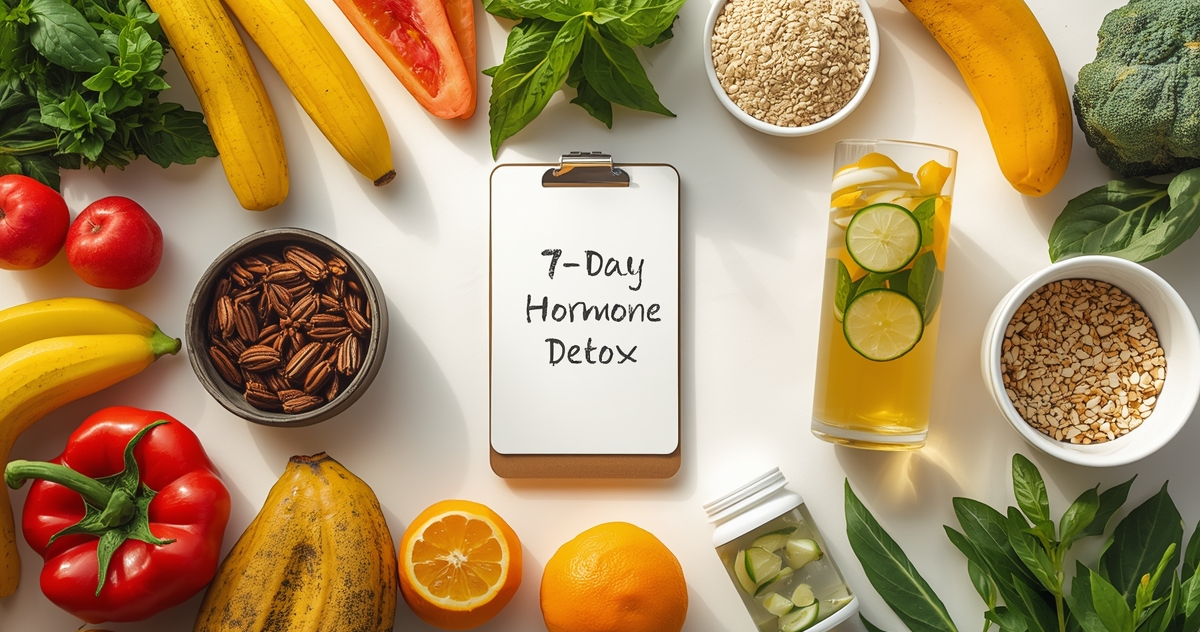For many, losing weight after 40 can feel like an uphill battle. You’re exercising, watching your portions, and doing everything “right,” yet the scale refuses to budge. Sound familiar? If you’re nodding along, you’re not alone. Research shows that age-related factors—such as hormonal changes, a slower metabolism, and lifestyle shifts—can make shedding pounds harder than it used to be.
The good news? With the right strategies, midlife weight loss is achievable.
What Makes Losing Weight After 40 So Challenging?
Getting older brings unique challenges when it comes to maintaining a healthy weight. Here’s why it might feel harder now than it did in your 20s or 30s:
- Hormonal Changes
Hormonal shifts are one of the biggest obstacles to weight loss after 40. Declining levels of estrogen and testosterone can slow metabolism, increase fat storage, and reduce muscle mass. These hormones play a key role in how efficiently your body burns calories, often contributing to stubborn weight gain, especially around the belly. - Slower Metabolism
Metabolism naturally slows down by about 2–3% per decade after age 40. This means your body burns fewer calories at rest and during activity, making it easier to gain weight and harder to lose it. Chronic stress and adrenal fatigue—common at this stage—can raise cortisol levels and further impair metabolic function. - Lifestyle Habits
By your 40s, life tends to get busier and more stressful. Career demands, parenting, and caregiving responsibilities can leave little time for exercise, meal planning, or rest. Increased stress often leads to emotional eating and fatigue, making healthy choices more difficult to maintain.
How to Make Weight Loss After 40 Work for You
Losing weight in your 40s and beyond isn’t impossible—it just requires a more intentional, body-aware approach. Here’s how:
- Address Hormonal Imbalances First
Hormonal imbalances can undermine even the best diet and workout plans. If you suspect symptoms of imbalance, seek expert guidance and consider hormone testing. Strategies like a 7-day cleanse or natural detox can help reset your system and support hormonal balance. - Prioritize Nutrient-Dense Foods
A personalized nutrition plan is essential for sustainable weight loss. Focus on whole foods rich in protein, fiber, and healthy fats. If you’re frequently bloated or sluggish after meals, consider exploring food sensitivity testing to identify potential triggers. Eliminating problematic foods can improve digestion and support fat loss. - Build Muscle to Boost Metabolism
Muscle tissue burns more calories at rest than fat. Incorporate resistance training 2–3 times per week to preserve and build lean muscle mass. Strength training also improves posture, bone health, and can significantly reduce menopause-related belly fat. - Support Your Gut Health
A healthy gut is key to better metabolism and energy. Poor gut health can lead to digestive issues, fatigue, and inflammation. Add probiotics, prebiotics, and fiber-rich foods to your diet to restore balance and improve nutrient absorption. - Choose the Right Supplements
If you’re not getting all the nutrients you need from food alone, supplements can help fill in the gaps. Look for hormone-balancing supplements or energy boosters formulated for women over 40. Always consult a healthcare professional before starting a new supplement regimen. - Consider Functional Lab Testing
Functional testing can provide valuable insights into your unique biochemistry. Tests such as hormone panels, nutritional assessments, or metabolic bloodwork can uncover hidden issues that may be stalling your weight loss progress. With this data, you can create a precise and personalized wellness plan. - Manage Stress and Improve Sleep
Stress and poor sleep are often overlooked contributors to weight gain. Elevated cortisol can promote fat storage, while a lack of sleep disrupts hunger-regulating hormones, leading to overeating. Create a calming bedtime routine and try stress-relief practices like yoga, deep breathing, or meditation. - Focus on the Bigger Picture
Weight loss isn’t just about a number on the scale. It’s about improving your energy, strength, confidence, and long-term health. Whether it’s reducing belly fat in men or addressing inflammation and bloating in women, each step forward enhances your overall well-being.
Key Takeaways
Weight loss after 40 doesn’t have to feel mysterious or impossible. With the right tools and mindset, you can break through the barriers that come with midlife changes.
Here’s a quick recap to help you get started:
- Balance your hormones with natural solutions like targeted cleanses or detox programs.
- Improve your diet with whole, anti-inflammatory foods tailored to your needs.
- Incorporate strength training to preserve muscle and boost your metabolism.
- Support your gut health to reduce bloating and enhance nutrient absorption.
- Use lab testing to identify internal obstacles and personalize your wellness plan.
- Start small and stay consistent—progress is a journey, not a sprint.
Ready to Take the First Step?
If you’re ready to finally feel in control of your weight and health, Leap 2 Better Health offers customized programs designed to meet you where you are. Our holistic approach combines hormone support, functional testing, and nutrition coaching to help you thrive in midlife and beyond.
👉 Schedule your free e-book or PDF today and begin your natural healing journey.





